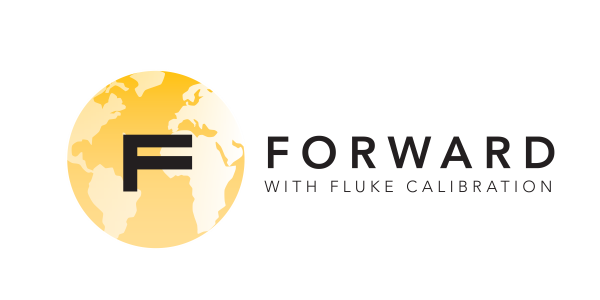- Other Fluke companies:
- Fluke
- Fluke Biomedical
- Fluke Networks
- Fluke Process Instruments
Fluke Calibration’s Jordan Crepps keeps driving forward
We’re proud to feature this interview with one of our team members who helps customers move forward with Fluke Calibration. Looking for a temperature calibration product? Contact Jordan Crepps at 425-446-6830.

Many professionals get their start in calibration and metrology via military service and training programs such as the Airforce's PMEL (Precision Measurement Equipment Laboratory). Fluke Calibration metrology specialist Jordan Crepps got into metrology via Microsoft.
"It is a roundabout way to get there."
“It is a roundabout way to get there. I was working on the WindowsTM team doing testing on the operating system. And thought that I was dealing a lot with databases. And that database experience gave me a great opportunity to apply for a job here [at Fluke Calibration] on the CIT software professional services team. I got the job and the database experience I gained at Microsoft proved very useful.”
“CIT stands for Customization, Installation, and Training, and that was a great opportunity for me to meet up with a lot of our customers. When people purchase the MET/TEAMTM Software, which we use for asset management, or the MET/CALTM calibration software to automate their instrument, they oftentimes need help getting started with it. My job was to help them become successful with those products. And what I found interesting is that a lot of the labs had different requirements, different needs, things they expected, different types of data they needed to record.”
"The most stringent requirements came from the pharmaceutical companies..."
Jordan notes that a company’s data requirements might be driven by government or quality regulations. “The most stringent requirements came from the pharmaceutical companies, the life sciences companies. They have a particular set of regulations that they have to adhere to, one of which is a regulation called 21 CFR Part 11. It’s a series that mandates how they electronically store any of their records. They have a requirement to keep track of all the changes that occur on their records.“
“So, for example, you’re performing a calibration of an asset--let’s say a torque meter came in and you’re performing a calibration on it--and the next day you realize you made a small typo on the records that you’re putting into the system. So they will go in and make that change and, according to 21 CFR Part 11, they need to have a record of what the original value was and then what the changed value was. They have a concept called an audit trail to maintain.”
He adds, “Some companies find that useful outside of the pharmaceutical world but it is required when you’re dealing with the FDA. MET/TEAM and MET/CAL do have the functionality to keep track of any changes that were made–who made the change, what date that change was made, what the original value was, and what the new value became.”
After three years with the CIT team, Jordan moved into sales. He spent a year with the Inside Sales group working with pressure calibration products, then moved into Field Sales to sell temperature calibration products.
Jordan meets a lot of temperature calibration customers who work in the pharmaceutical or life sciences industries. While the pharmaceutical companies manufacture similar types of products, the life sciences can include a broad spectrum of product needs. The temperature ranges that need to be calibrated cover a broad spectrum as well.
"There's a company that works with kidney dialysis; our temperature calibration products help support their autoclaves and their freezers."
“There’s a company that works with kidney dialysis; our temperature calibration products help support their autoclaves and their freezers. Autoclaves are used to sterilize equipment. You put some sort of device that needs to be sterilized into a chamber that pumps out steam at over 100 degrees Celsius, at high pressures, to quickly sterilize equipment. The temperature sensors in there need to be calibrated to ensure that the autoclave is reaching a temperature that will sterilize their product.”
“On the other end of the spectrum is the freezers. Various materials need to be stored at varying temperatures. Vaccines for example: the CDC has regulations on what temperatures vaccines must be stored at and it has to be somewhere from minus 50 degrees Celsius up to minus 5 degrees Celsius. It’s a fairly wide range but then there are some products that need to be stored at what’s considered cryo temperatures. That’s minus 80 degrees Celsius or sometimes even colder than that.”
Jordan helps customers find the right Fluke Calibration temperature products to cover the desired ranges at the required accuracy. “Our products are used to calibrate those devices to ensure that they’re working. So, for example, a freezer is going to have some sort of temperature sensor to ensure that it’s actually hitting minus 80 degrees Celsius, and either you can remove that sensor and place it into a bath to make sure it’s functioning properly or you can place a more accurate probe into the freezer and make sure that the two readings are jiving with each other.”
"People have some pretty unique circumstances."
Finding the right solution can be a challenge. “People have some pretty unique circumstances. One of the most common things when it comes to temperature is the various sensors and what sizes they have and how we can get those sensors calibrated. I was just working with [a company that develops] HVAC systems. They need to calibrate an array of thermocouples [installed] on a frame at various points. Instead of taking those thermocouples out they will put the array into a bath, but the problem is that this array is fairly large. So what we did was contact our custom engineering team. They took the specifications from the customer and developed a bath that will work for them. Our custom engineering team can do things that not too many other teams around the world can do.”
"It's nice getting a broad sense of what we offer..."
Having worked with calibration software as well as pressure and temperature calibration products gives Jordan a unique perspective. “It’s nice getting a broad sense of what we offer because that gives me the ability to identify various needs that a customer might have and help them out by either working with them directly or by getting them in contact with the right person.”

“It really does amaze me how much Fluke has grown. I’m guessing we offer quadruple the products now that we did in 1998. By no means am I expert in any of it compared to the people who have been here for 40 years. But I have a broad sense of what we offer and how it can improve customer experience. That’s been really nice, but eye opening, and it’s quite difficult too. A lot of this stuff is very complex so understanding it requires a bit of discipline.”
Fluke is a family affair for the Crepps. Jordan’s father works with Fluke Process Tools and his younger brother is on the technical support team. “We get yelled at at family get-togethers – ‘stop talking Fluke!’” He laughs.
He turns serious when asked about his future. “There’s still a lot more for me to learn here at Fluke and a lot more experiences to be had, so just looking forward to that and helping our customers out.”
Keep learning
Learn About Calibration
Spotlight on Fluke Calibration DoD Sales Associate Joe Baker and His Metrology Career
Related products
Get Help
Speak with a calibration product expert about your equipment needs

- Home
- Products
- New Products
- Electrical Calibration
- RF Calibration
- Data Acquisition and Test Equipment
- Temperature Calibration
- Humidity Calibration
- Pressure Calibration
- Flow Calibration
- Process Calibration Tools
- Calibration Software
- Service and Support
- All Calibration Instruments
- Purchase Info
- News
- Training and Events
- Literature and Education
- Service and Support
- About Us


